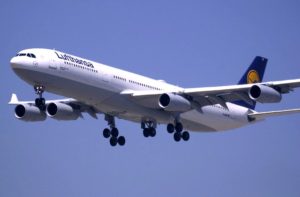
Lufthansa Announces New Commercial Flights Using Biofuel
One of the most well-known airlines in the world, Lufthansa, has just recently confirmed that it will begin a six month biofuel trial on scheduled commercial flights. According to reports, this is supposed to kick off as of April next year.
This project, which is being run in conjunction with the German national aviation research program, will operate an Airbus A321 on the Hamburg-Frankfurt-Hamburg route for the duration of the trial. Pending certification, one of the aircraft’s engines will use a 50-50 mix of biofuel and traditional kerosene.
The state secretary for economics and technology, Peter Hintze, said that with its aviation research program, the federal government is supporting the German aviation industry in its effort to master the technological challenges of establishing a safe and sustainable air traffic system. They would like to prove that backing this is affordable within internationally comparable framework conditions.
Pretty much, the primary purpose of this whole project is to conduct a long-term trial to study the effects of biofuel on engine maintenance and engine life. Will using biofuel increase or decrease the life of an engine? These are all things that the airline industry has to look at before they choose to make a jump to biofuel or not.
Either way, this is a step in the right direction for the airline industry. The whole industry is working hard at lowering their carbon emissions. This comes during a time when some countries, like the UK, are pushing more toward rail travel than short-haul flights. People are saying that rail travel emits less carbon emissions. In order to fight off this new threat, the airline industry has to lower their CO2 output.

